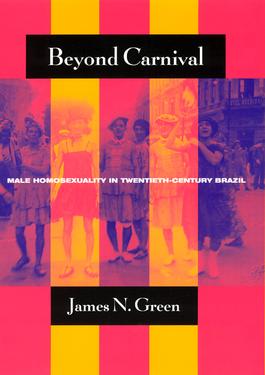Related Research Articles

Brazil, officially the Federative Republic of Brazil, is the largest and easternmost country in South America and Latin America. Brazil is the world's fifth-largest country by area and the seventh most populous. Its capital is Brasília, and its most populous city is São Paulo. Brazil is a federation composed of 26 states and a Federal District. It is the only country in the Americas where Portuguese is an official language. Brazil is among the world's most multicultural and ethnically diverse nations, due to over a century of mass immigration from around the world.

Fernando Henrique Cardoso, also known by his initials FHC, is a Brazilian sociologist, professor, and politician who served as the 34th president of Brazil from 1 January 1995 to 1 January 2003. He was the first Brazilian president to be reelected for a subsequent term. An accomplished scholar of dependency theory noted for his research on slavery and political theory, Cardoso has earned many honors including the Prince of Asturias Award for International Cooperation (2000) and the Kluge Prize from the US Library of Congress (2012).

São Paulo is one of the 26 states of the Federative Republic of Brazil and is named after Saint Paul of Tarsus. It is located in the Southeast Region and is limited by the states of Minas Gerais to the north and northeast, Paraná to the south, Rio de Janeiro to the east and Mato Grosso do Sul to the west, in addition to the Atlantic Ocean to the southeast. It is divided into 645 municipalities and its total area is 248,219.481 square kilometres km2, which is equivalent to 2.9% of Brazil's surface, being slightly larger than the United Kingdom. Its capital is the municipality of São Paulo.

São Paulo is the most populous city in Brazil and the capital of the state of São Paulo. Listed by the Globalization and World Cities Research Network (GaWC) as an alpha global city, it exerts substantial international influence in commerce, finance, arts, and entertainment. It is the largest urban area by population outside Asia and the most populous Portuguese-speaking city in the world. The city's name honors Paul the Apostle and people from the city are known as paulistanos. The city's Latin motto is Non ducor, duco, which translates as "I am not led, I lead."

Tarsila de Aguiar do Amaral was a Brazilian painter, draftswoman, and translator. She is considered one of the leading Latin American modernist artists, and is regarded as the painter who best achieved Brazilian aspirations for nationalistic expression in a modern style. As a member of the Grupo dos Cinco, Tarsila is also considered a major influence in the modern art movement in Brazil, alongside Anita Malfatti, Menotti Del Picchia, Mário de Andrade, and Oswald de Andrade. She was instrumental in the formation of the aesthetic movement, Antropofagia (1928–1929); in fact, Tarsila was the one with her celebrated painting, Abaporu, who inspired Oswald de Andrade's famous Manifesto Antropófago.

Gilberto de Mello Freyre was a Brazilian sociologist, anthropologist, historian, writer, painter, journalist and congressman born in Recife. Considered one of the most important sociologists of the 20th century, his best-known work is a sociological treatise named Casa-Grande & Senzala.

Tizuka Yamasaki is a Brazilian film director.

Nélida Piñon was a Brazilian author and professor. At the time of her death, Piñon was "considered among the foremost writers in Brazil today".
Arquivo Edgard Leuenroth is a historical and media archive that is maintained by the Brazilian State University of Campinas, located in the city of Campinas in the state of São Paulo, Brazil. It was started by a donation of the media collection assembled by Brazilian anarchist journalist and publisher Edgard Leuenroth (1881–1968).
Bernardo Sorj is a Brazilian social scientist, retired professor of Sociology at the Federal University of Rio de Janeiro. He is Director of The Edelstein Center for Social Research and of the Plataforma Democrática Project. He has published 30 books and more than 100 articles, on Latin American political development, international relations, the social impact of new technologies, social theory and Judaism.

The term social apartheid has been used to describe various aspects of economic inequality in Brazil, drawing a parallel with the legally enforced separation of whites and blacks in South African society for several decades during the 20th-century apartheid regime.

Getúlio Dornelles Vargas was a Brazilian lawyer and politician who served as the 14th and 17th president of Brazil, from 1930 to 1945 and from 1951 until his suicide in 1954. Due to his long and controversial tenure as Brazil's provisional, constitutional, dictatorial and democratic leader, he is considered by historians as the most influential Brazilian politician of the 20th century.

The Brazilian Black Front, part of the Black Movement of Brazil, was Brazil's first political party representing the Black community. Formed in 1931 and active until the November 10, 1937 suspension of political parties by the then president, Getúlio Vargas, the Frente mobilized Brazil's Afro-Descendant community for a project of racial equality. Desegregation campaigns and popular education focusing on literacy were just two of the ways the Frente engaged in activism.
Rebecca Jarvis Scott is an American historian, and Charles Gibson Distinguished University Professor of History and Professor of Law, at University of Michigan.
Jeffrey Lesser is a U.S.-based historian of Latin America who is the Samuel Candler Dobbs Professor at Emory University. Prior to that he was the Winship Distinguished Professor of the Humanities. After two terms as the chair of the History Department at Emory University he was named the first faculty director of the Halle Institute for Global Research. He is the author of numerous books on ethnicity, immigration and national identity in Brazil. In 2022 Lesser won Emory University‘s Eleanor Main Graduate Mentor Award and in 2023 he received the Marion V. Creekmore Award for Internationalization.
The following is a timeline of the history of the city of São Paulo, Brazil.

Beyond Carnival: Male Homosexuality in Twentieth-Century Brazil is a nonfiction book by historian James N. Green published by the University of Chicago Press in 1999. The book details the development of the homosexual subcultures that developed in Rio de Janeiro and São Paulo, specifically regarding gay men. A Portuguese translation of the book was published by Editora da UNESP in 2000, and a third expanded edition came out in 2022.

James Naylor Green is the Carlos Manuel de Céspedes Professor of Modern Latin American History and Professor of Brazilian History and Culture at Brown University.

Barbara H. Stein was a scholar and bibliographer of Latin American and Iberia at the Princeton University Library. She and her husband Stanley J. Stein published works on Spain and Spanish America, analyzing the rise and fall of the Spanish Empire. Stein was honored with the American Historical Association’s Award for Scholarly Distinction in 1996, recognizing her career contributions to Iberian and Spanish American history. In 2018, Princeton University acquired a valuable collection of Brazilian manuscripts. "The acquisition honors Stanley and Barbara Stein's contributions to the library's Latin American collections and to Latin American studies at Princeton."
Populism refers to a range of political stances that emphasise the idea of "the people" and often juxtapose this group against "the elite". This article focuses on populism in Latin America.
References
- 1 2 3 "Homepage at NYU" . Retrieved 11 February 2012.
- ↑ Stanfield, Brent (10 February 2011). "NYU professor discusses racism in Brazil". The Phoenix. Archived from the original on 13 October 2011. Retrieved 11 February 2012.
- ↑ Weinstein, Barbara (1996). For Social Peace in Brazil: Industrialists and the Remaking of the Working Class in São Paulo, 1920–1964. University of North Carolina Press. ISBN 978-0-8078-4602-5.
- ↑ "Barbara Weinstein at John Simon Guggenheim Memorial Foundation" . Retrieved 11 February 2012.
- 1 2 Ottalini, David (23 January 2006). "Maryland Professor Barbara Weinstein Named 2007 President of the American Historical Association". UMD Newsdesk. Retrieved 11 February 2012.
- 1 2 3 Weinstein, Barbara (February 2008). "Developing Inequality". American Historical Review. 113 (1): 1–18. doi: 10.1086/ahr.113.1.1 .
- ↑ "2010–2011 Radcliffe Institute Fellows". Radcliffe Institute for Advanced Study. Archived from the original on 9 February 2012. Retrieved 11 February 2012.
- 1 2 Weinstein, Barbara (January 2007). "The AHA and Academic Freedom in the Age of Homeland Security". Perspectives. Retrieved 11 February 2012.
- ↑ Young, Joanne (25 October 2010). "Epilogue: UNL professor more a realist after struggle to get here". Lincoln Journal Star. Retrieved 11 February 2012.
- ↑ Weinstein, Barbara (December 2007). "The AHA and Academic Freedom in the Age of Homeland Security, Revisited". Perspectives. Retrieved 11 February 2012.